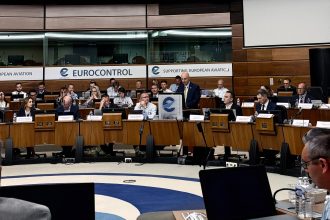
by Cheryl CHEN
IFATCA Executive Vice President Asia/PacifcTraditionally, Air Traffic Controllers are expected to have a strong mental ability, especially when dealing with stressful situations. Controllers are expected to be able to deal with those critical moments calmly and with a sharp mind.
Physical and mental fitness is imperative to carry out our duties and even part of our licence requirements. Therefore, while we have no issues reporting physical illness, we seldom report mentally unfit to our managers, even though we all have those days when we are really distracted by other events that take place in our lives. After all, air traffic controllers are human beings. Being an ATC is just one of many roles we play in life. The impact of those other roles, such as someone’s child, parents, or significant others, may affect our role as an Air Traffic Controller. However, as Air Traffic Controllers, we seldom admit to any vulnerability or ask for help.
During the pandemic, many of our ATC brothers and sisters suffered from the loss of important family members and friends. Covid also brought uncertainty to our work lives with reduced hours, reduced salaries and even layoffs in the aviation sector.
It should be obvious that we have to look after the mental health of our colleagues to ensure the safety of aviation.
Last year, at the ASP RM in Cebu, Philippines, the concept of CISM was introduced with a practical sharing session on the concept, in which Tom McRobert from Australia and Janet Taylor from New Zealand shared the peer support or mental health-supporting initiatives in their respective countries.
With the strong positive feedback received from the audience, the IFATCA Asia Pacific Region Executive Team, in conjunction with Mr. Marc Baumgartner SESAR coordinator, hosted the IFATCA Asia Pacific CISM Webinar Series online fortnightly throughout June and July 2023.
As the concept of CISM is still relatively unknown in most member associations in the ASP region, we decided it was crucial to bridge this knowledge gap and build a knowledge base of CISM for our member Associations.
The ASP Executive Team and Mr. Baumgartner therefore decided the Webinar Series would focus on the basics, introducing the topic and imparting basic knowledge, finally culminating in a practical sharing session.
The Webinar Series was then designed to start with three lectures, solely presented by Mr. Baumgartner, on the topics of stress, the influence of stress, how to cope with stress, and ATC-related stress and its effects on our work. Throughout these three lectures, the audience gets to learn the sources of stress, the techniques to cope with stressful moments, what critical incident stress management is, especially in the ATC context, the 9 steps your MA should take to set up CISM, and the CISM reference resources from IFATCA.
We then invited four CISM experts from New Zealand, Japan, South Africa, and Switzerland to share with the audience on how CISM was introduced in their respective countries. Each of them shared the catalyst stories, most of them sad ones, which prompted the setting up of CISM. They spoke about what the regulation is around having CISM in place and what challenges they have met along the way of CISM implementation.
Attendance was high, with around 70-80 in each session, most of whom were our ATC members, but some psychology experts also took part in the event and provided their suggestions and comments during the Q&A session.
Feedback on the benefits of the Webinar series was overwhelmingly positive, with many suggestions for follow-up sessions.








